- Home
- Dornford Yates
B-Berry and I Look Back Page 5
B-Berry and I Look Back Read online
Page 5
Jill put in her oar.
“I never knew they had MPs when Chaucer – What’s the word, Boy?”
“The high-brow term,” said I, “is ‘flourished’.”
“‘Did his stuff’,” said Berry. “This is a low-brow book. Well, they hadn’t been going long. Anyway, as everyone knows, Chaucer’s most famous work was The Canterbury Tales. He was a very quiet fellow and, I think on his own admission, he kept his eyes upon the ground. But he didn’t miss much – The Canterbury Tales show that. They show beyond all argument that his knowledge and understanding of human nature were most exceptional. There are the pilgrims before you, in their habits, as they lived – the squire, the parson, the doctor, the lawyer, the undergraduate, the sailor, the carpenter, the ploughman, the cook and the gay widow of Bath. And others. Quite apart from the glorious entertainment of the tales they tell, their portraits are most beautifully presented – and all, in exquisite verse.
“The Wife of Bath was rather deaf, which, says Chaucer, was a pity. She was very jealous of her standing, and if any other lady of Bath presumed to precede her, such lady was never forgiven. She was bold-faced, handsome and raddled. Her stockings were scarlet and were always nice and tight. She had had five husbands and, in her youth, had never looked at another man. Her middle age, observes Chaucer, is no affair of ours. To tell the truth, he adds, her teeth were set wide apart. She was a traveller: she had visited Jerusalem, Rome and Cologne – which is more than most of us can say. She rode well and easily – astride, of course, but her spurs were sharp. For decency’s sake, an ample apron was girt about her substantial hips. Finally, says Chaucer, among friends she was excellent company. ‘In fellowship well could she laugh and talk.’ But, as a mistress, you could teach her nothing. ‘Of that art, she knew the old game.’
“Whether that can be beaten as a portrait, is not for me to say. The fact remains that it was written in 1389.
“Yet, so often as I think of Chaucer, the first thing that always comes to my mind is his haunting picture of the poor parish priest – ‘a pore Persoun of a town’. And especially the last two lines, which I have by heart. ‘But Cristes lore, and his apostles twelve, He taughte: but first he folwed it himselve.’”
“Quite perfect,” said Daphne. “And only a very nice man could have written such lovely words.”
“Of such,” said Berry, “was ‘the well of English undefyled’. At least, so Spenser called him; and he was a pretty good judge.”
“Is that all?” said Jill.
Berry nodded.
“I don’t want to bore: I just want to whet the taste. When the lords of the films read that, they’ll send a man over at once, contract in hand. Not to see me. To find Chaucer and get the rights. And while he’s on the way, they’ll retain the rage of Broadway to play The Wife of Bath. I think I’ll do Smollett next. And now let’s hear some more about British Justice.”
“One moment,” I said. “I believe it to be a fact that, when Playfair revived The Beggar’s Opera, Somerset House sent an income-tax form to John Gay.”
“What does that mean?” said Jill.
“Well, he was the author, my sweet. And as the revival was an immense success, Somerset House thought they’d have a slice of his royalties. But he wasn’t in the telephone-book, so they sent the demand to the theatre. But he never got it, for nobody knew where he was. You see, John Gay had been dead for two hundred years.”
“Tell us,” said Daphne, “about the case you did that Whitsun weekend.”
I smiled.
“Fancy your remembering that.”
“Well, it was a great triumph, Boy.”
“It was for me. But then I was very small fry.”
“You gave all you’d got,” said Daphne, “because it was touch and go. When you got to White Ladies that night – well, I’d never seen you so done.”
“It had been worrying. And, as the Duke would have said, ‘it was a close-run thing’.”
“Who was against you?” said Berry.
“No mortal man, but a very dangerous opponent who cares for no rules of law. We call him Prejudice.”
“Let’s have it,” said Jonah.
“I warn you,” I said, “it was not spectacular. I didn’t save anyone’s neck. And I don’t suppose it was reported, except in the local Press.”
“Proceed,” said Berry.
“The Whitsun weekend,” I said, “in 1914. Saturday morning – a very beautiful day. I was just going out of Town, when the telephone went. When I took the receiver off, I heard the voice of my clerk. He said that the matter was urgent – a motor car case. He couldn’t get hold of Harker, who had already left Town: so the AA would be glad if I would help them out. An inquest at Laidlow that very afternoon. A cyclist was dead, and a chauffeur stood in grave danger of a verdict of manslaughter. Local solicitors had been instructed on his behalf, but this was a case for counsel. The solicitors would hand me a brief. Would I undertake the case? If so, a train for Laidlow was leaving in half an hour. An AA official would meet that particular train and put me wise.”
“Laidlow,” said Daphne. “Where’s that?”
“I’ve changed the name, my darling. You know the town quite well.”
“I understand.”
“I said, Very well, I’d go – and put the receiver back… And I’d hoped to lunch at White Ladies…and then go on to play tennis at Merry Down…
“I sent a wire to Daphne and managed to catch the train. The AA man met me at Laidlow, as arranged, and we drove at once to see the solicitors.”
“How did you get your robes?”
“Counsel don’t wear robes in the Coroner’s Court. Nor, of course, in the Police Court. At a Court Martial, they do.”
“Usedn’t you to carry your robes in a dark-blue bag?”
“Seldom, if ever, out of London. The bag was all right, so long as it only contained your robes and your brief. But when you had to take volumes of Law Reports, it became very unwieldy: and so, for the sake of convenience, you used a small, leather kit-bag – at least, I did.”
“What was it made of – the blue one?”
“Well, it looked like damask,” I said. “I should say it was figured mohair – I may be wrong. But it was very strong. You closed the neck by drawing two cords together – two stout blue cords. When your progress at the Bar had attracted the attention of a ‘silk’, he would tell the robe-makers to deliver to you a red bag, with his compliments. I need hardly say I never received that attention.”
“I wonder Charles Gill didn’t send you one. I mean, he did ask you to enter his Chambers.”
“He probably didn’t think of it. And I’m much more proud of that than of any red bag.”
“You ought to have had one,” said Jill.
“Quite honestly, my darling, I don’t think that I deserved it.”
Jill sighed.
“You always say that,” she said, “about everything. What about—”
“My sweet,” I said, “I beg that you’ll leave it there. And now let’s get back to Laidlow.
“The solicitors received me very kindly. The brief was non-existent – they’d had no time. So they gave me a back-sheet, and, what was more to the point, the use of a very nice room. Would I like to see the chauffeur? ‘Not yet,’ I said. ‘Please tell me about the case.’
“Well, we all know Laidlow – as it was, and the line of the London road… Out of the town and up a long, straight rise – with side-roads on the left, running very sharply up-hill.
“Two days before, the chauffeur had driven to Folkestone and seen his master and mistress on board a Channel steamer, en route for the South of France. His orders were to drive the car back to London and then take a fortnight’s leave.
“The car was a landaulette and a powerful car.
“Once clear of the streets of Laidlow, the chauffeur is popping along, up the long, straight rise and well on his left-hand side. Then a cyclist, moving fast, swings suddenly out of a side-roa
d, only a few feet ahead. The cyclist is bound for Laidlow and so he bears half-right. He has to do that, you see, to get to his proper side of the London road. In a frantic endeavour to avoid him, the chauffeur bears to his right… In fact he ends up on the pavement and knocks a lamp-post down. But he can’t quite clear the cyclist, who hits the near-side panel right at the end of the car. And the poor fellow breaks his neck.
“There were one or two witnesses, but none were valuable. They swore, of course, that it was the chauffeur’s fault. Cars were unpopular then, and that particular stretch was inviting speed. Just clear of the town, you know, a good straight road ahead and a steady rise. Many a time I’ve put my foot down there.”
“So’ve I,” said Jonah. “I’m afraid we were lucky – that’s all.”
“Well, what did the police find? A cyclist dead in the road of a broken neck: and the car that did it not only upon its wrong side, but with one of its wheels on the pavement and half a lamp-post upon its canopy.
“And now for the strong stuff.
“The cyclist was a Laidlow man and immensely popular: a modest, hard-working joiner and everyone’s friend. He was very happily married – with seven children, the eldest of whom was fourteen. Side-road and main road – he knew them as the palm of his hand, for, while he worked in Laidlow, the side-road led to his home. In other words, for more than seven years he had rounded that fatal corner at least once every day.
“‘I take it,’ I said, ‘that feeling is running high.’
“The solicitor made a wry face.
“‘I’m afraid it is, Mr Pleydell. Very high. And most of the Coroner’s Jury certainly knew the dead man.’
“I nodded.
“‘And the Coroner?’ I said.
“‘We’re all right there. He’s very good at his job and he’s nobody’s fool.’ He hesitated. ‘I’m sorry to have to say that the chauffeur is badly rattled.’
“‘He’s afraid of the verdict?’
“‘Yes.’
“This was natural enough. As I have said, cars were unpopular then, and verdicts of manslaughter were frequently returned. It didn’t follow, of course, that whoever was driving went down: but he had to stand his trial at the next Assizes. And if the case went wrong, he was sent to jail. And not for six months, either.
“He gave me a few more facts and showed me the police report.
“‘Well now,’ I said, ‘will you have the chauffeur in?’
“He was a nice-looking fellow, aged, I think, thirty-five. His licence was clean, and we’ll say that his name was Blake.
“The solicitor introduced us.
“Then –
“‘Blake,’ I said, ‘I’m here to look after you. And I’m going to do my best to get a verdict of accidental death. But I can’t do it, Blake, unless I have your help. And the only way you can help is by telling the absolute truth. Never mind if the truth is against you. I’ve got to convince the jury that you are an honest man. If I can do that, we’re home. But that is our only chance.’
“‘Very good, sir,’ said Blake.
“‘And now please tell me what happened from first to last.’
“Well, he told me what I’ve told you. And he kept on saying, ‘He never gave me a chance.’
“‘I know what you mean,’ I said: ‘but tell me what you mean in so many words.’
“‘Well, I did all I could, sir, but he did nothing at all. If he’d turned sharp to his right, he might have had a spill, but he wouldn’t have hit the car.’
“‘I quite understand,’ I said. ‘Was the road behind you clear?’
“‘Nothing behind or in front, sir. No cars, I mean.’
“‘And now tell me this. What speed were you going, when the accident occurred?’
“‘Twenty miles an hour, sir,’ said Blake.
“I knew he’d say that, of course. For twenty miles an hour was the speed limit then. (At least, I think it was. Any way, it was very low and was regularly ignored.) And everyone going over twenty was out of court. And I mean what I say. That was the end of his case.
“‘Blake,’ I said, ‘you’re going to be asked that in court. And if you give that answer, you’ll get a verdict of manslaughter, sure as a gun. Why? Because they won’t believe you. I don’t believe you, myself. You were going twice that speed, and you know it as well as I.’
“Blake put a hand to his head.
“‘But I can’t say that, sir,’ he said: ‘because, if I do, I’ll just be cutting my throat. Anything over twenty’s against the law.’
“‘We’re not in court now,’ I said. ‘Tell me here, in this room, what was your speed, when the cyclist hit the car.’
“Blake looked over his shoulder. Then he took a deep breath.
“‘About fifty, I’d say, sir. I never ’ad time to look. But–’
“‘Why were you going so fast?’
“‘Because I was tryin’ to clear him. I shoved my foot right down. But for the lamp-post, I think I might of done it. Not that I cared about that, but it checked my speed. I couldn’t avoid it, of course. They would put one just there.’
“‘That’s a very good answer, Blake, and I want you to say it again. Why were you going so fast?’
The chauffeur repeated his words.
“‘Good. That is the answer you’re going to give in court. And, if you give it, Blake, I believe I can get a verdict of accidental death.’
“‘But–’
“‘Listen, Blake. If you give any other answer, I think you’ll go down. You see, that answer rings true…and it shows you were doing your utmost to save the cyclist’s life. You saw the lamp-post ahead, but you didn’t care about that.’
“‘I was over the speed-limit, sir.’
“‘I know you were. But why? Because you were doing your best to save a man’s life. And now let’s leave the matter. Tell me this. Was the cyclist moving fast?’
“‘Come out like a flash, sir. As if he had the road to himself.’
“‘I shouldn’t say that in court. I’m not saying it isn’t true. I think it probably is. But the jury won’t like it at all – because it is a reflection upon the dead man. You see the point?’
“‘Yes, sir.’
“‘Very well. My answer to that question would be, ‘I’m afraid he was. Very fast.’
“‘I’m afraid he was. Very fast.’
“After half an hour I’d got him pretty well schooled. Finally, I said, ‘Don’t be afraid of the truth. It’s the strongest card you’ve got. If the jury thinks you’re honest, I don’t think they’ll send you down.’
“When, about an hour later, I entered the Coroner’s Court, I hoped I was right. The hostility made me feel cold. I don’t think I’ve ever been so conscious of an atmosphere. And the court was crammed. Three of the orphans, stony-faced and wearing the deepest mourning, sat in the front row. Happily, I had told Blake to wait outside the court, until I sent for him.
“When the AA man appeared, a minute or so after me –
“‘Blake tells me,’ he said, ‘that you’ve told him to stay where he is. Don’t you think he ought to hear the evidence of the police?’
“‘Yes,’ I said, ‘I do. But we’ll have to let that go. If he is to sit in this court for half an hour, he will be all to bits when he enters the box. But once he’s being examined, he won’t notice the atmosphere.’
“When the Coroner took his seat, he looked very grave, but I saw at once that he was a proper man. When the jury took their seats, they looked very grim.
“Well, the case took the usual course – identification of the dead man, police statement, surgeon’s evidence. Mercifully, nothing was said about the deceased’s familiarity with the roads. I never opened my mouth – I mean, I asked no questions. I fear the AA man felt that I should have questioned the police; but the wicket was so sticky that I let the loose balls go.”
“Were you wise?” said Berry.
“Yes, I think I was right. I might have got an answe
r that didn’t suit me at all.
“Then the chauffeur was called…
“I rose at once and requested the Coroner’s permission to examine him. This he gave. To my immense relief, although he was very nervous, he did very well. I led him as much as I dared. In the Coroner’s Court, you can get away with such things.”
“When you say ‘led him’,” said Jill, “what exactly d’you mean?”
“This, my sweet. I put to him ‘leading’ questions. A ‘leading’ question is a question which indicates unmistakably the answer you wish to receive. That you may not do in examination-in-chief. I mean the Judge will stop you – at least, he should. For instance, I said to the chauffeur, ‘To see the cyclist emerge from the side road so fast must have been a very great shock?’ And the chauffeur replied, ‘A very great shock, sir.’ ‘You saw the frightful danger?’ ‘I did, sir. But he didn’t seem to see it. He held straight on.’
“But the Coroner was very decent. He was, of course, well aware of the prejudice which I was fighting, and he was a just man. He let me say a few words before he summed up: and the direction he gave was very fair. Then the jury retired. They were out for about twenty minutes, if I remember aright. And then they came back and said ‘Accidental death.’
“So that was all right. And I do think justice was done. I quite believe that Blake was – well, popping along. But for a cyclist to whip out of one of those side roads on to and across the London road was – well, suicidal. Be that as it may, it was a very near thing. As I have said, the prejudice in that court made me feel quite cold. I knew it was coming, of course, and, again as I think I’ve said, I’d already made up my mind that the only thing that could break it was transparent honesty.
“I remember that I said to the jury, ‘I’m not here to ask any favours. Subject to the Coroner’s direction, you will bring in the verdict which you think you ought to bring in. I have come down to see that the chauffeur’s case is fairly and squarely presented, to show that he did his utmost to save this valuable life. And don’t forget, gentlemen, that he would be dead himself, if he hadn’t had that canopy over his head.’”
“That was very skilful,” said Berry. “And now tell me this – if you’d failed, and they’d returned a verdict of manslaughter, he’d have been committed for trial. Would he have got off at the Assizes?”

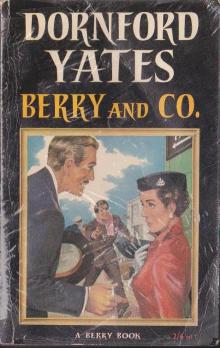 Berry and Co.
Berry and Co.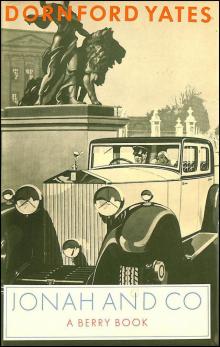 Jonah and Co.
Jonah and Co.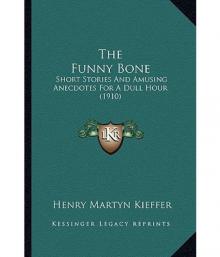 The Funny Bone: Short Stories and Amusing Anecdotes for a Dull Hour
The Funny Bone: Short Stories and Amusing Anecdotes for a Dull Hour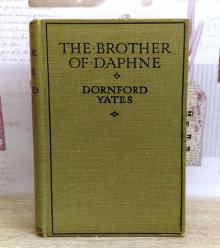 The Brother of Daphne
The Brother of Daphne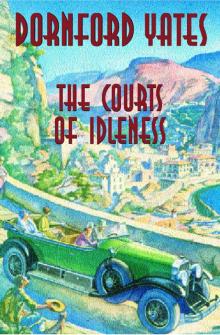 Courts of Idleness
Courts of Idleness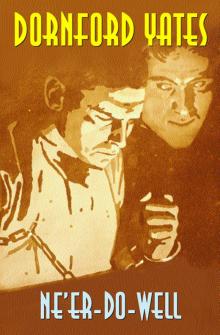 Ne'er Do Well
Ne'er Do Well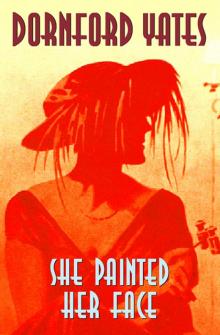 She Painted Her Face
She Painted Her Face Safe Custody and Laughing Bacchante
Safe Custody and Laughing Bacchante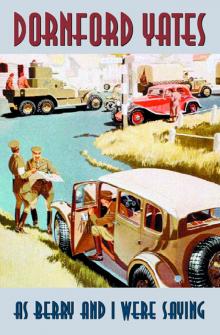 As Berry and I Were Saying
As Berry and I Were Saying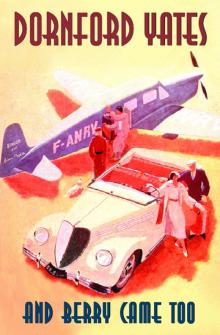 And Berry Came Too
And Berry Came Too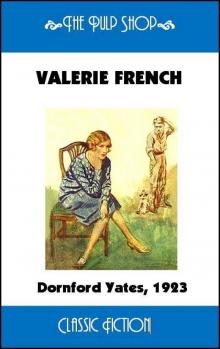 Valerie French (1923)
Valerie French (1923)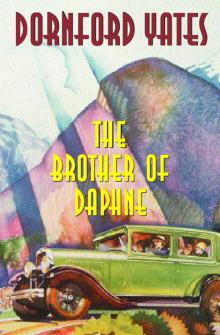 Brother of Daphne
Brother of Daphne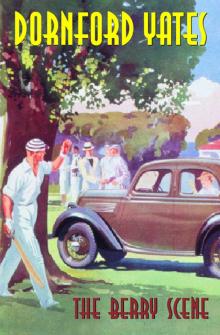 Berry Scene
Berry Scene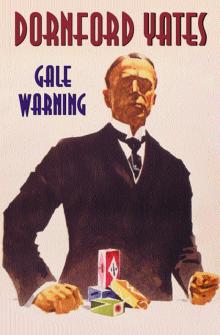 Gale Warning
Gale Warning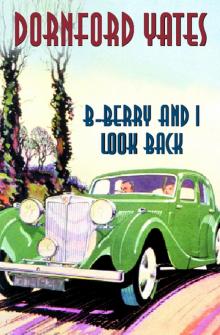 B-Berry and I Look Back
B-Berry and I Look Back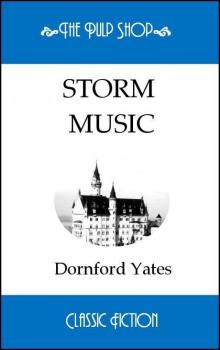 Storm Music (1934)
Storm Music (1934)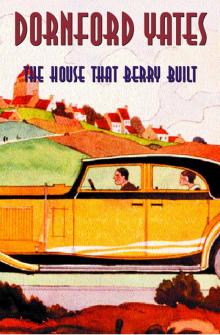 House That Berry Built
House That Berry Built